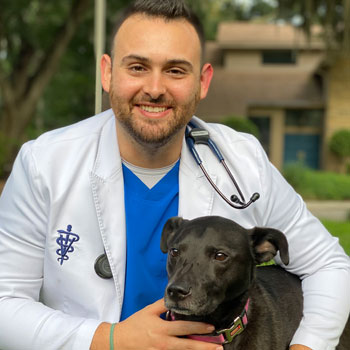A guide to microchipping pets in Oakleaf Plantation, FL: Making many happy reunions possible
Our clients and beloved patients quickly become a part of the extended Orange Park Animal Hospital at Oakleaf “family.” It breaks our hearts to imagine this extended family going through the heartbreak of being separated. If your pup or cat gets loose, we want to ensure a reliable way to reunite you with your furbaby! Just as vaccines protect from life-threatening diseases, microchipping also provides protection from the unthinkable.
Microchipping basics in Oakleaf Plantation, FL
This procedure involves placing a small (“micro”) electronic chip underneath your pet’s skin. The chip is about the size of a grain of rice. It is very safe, straightforward, and relatively painless. It is not considered a surgical procedure and doesn’t require anesthesia. Our primary veterinarian, Dr. James Gillen, will simply place the microchip under the skin behind the neck similar to any other injection during a routine visit or when completing another standard procedure (like neutering or spaying).
If you can’t find your pet, the chip will do the tracking for you. It works like this:
- Each chip contains a number. So, your pet has its unique identifier.
- A scanner activates the chip itself.
- Staff at the shelter, pound, rescue, or clinic that your pet is taken to, will typically scan any lost animals for microchips right away.
- Radio waves emitted by the scanner trigger the chip, which transmits the identifier to the scanning device.
- Only this number can be seen on the monitor. No other personal or identifying info about you is provided. So, you can rest secure that no one will find out where you live or get ahold of your phone number.
- To assure your pet is quickly reunited with you, it’s essential to register with the chip’s respective registry. Again, your privacy and security are paramount. Only the contact info that you choose to provide will be available and used to connect you and your pet. You can opt out of any other information from the manufacturer. Protections are also in place, which limits access to registrants’ contact info.
- It is vital to update your contact details should you move or change phone numbers. The American Veterinary Medical Association reports that microchipped pets are not returned to their owners most of the time due to incorrect contact info or a lack of information in the registry.
Microchips work! The AVMA further notes, in a study of 7,700 pets, around 22% and 1.8% of non-microchipped dogs and cats, respectively, were reunited with their parents. However, more than half of microchipped dogs and almost 39% of microchipped cats had a joyous reunion with their parents. If you just adopted or “inherited” a new pet and are unsure if he or she is chipped, we urge you to contact us. We can scan your pet to check for a chip. Likewise, if your pet isn’t chipped yet, we can easily do that during your next visit! Contact us today.


